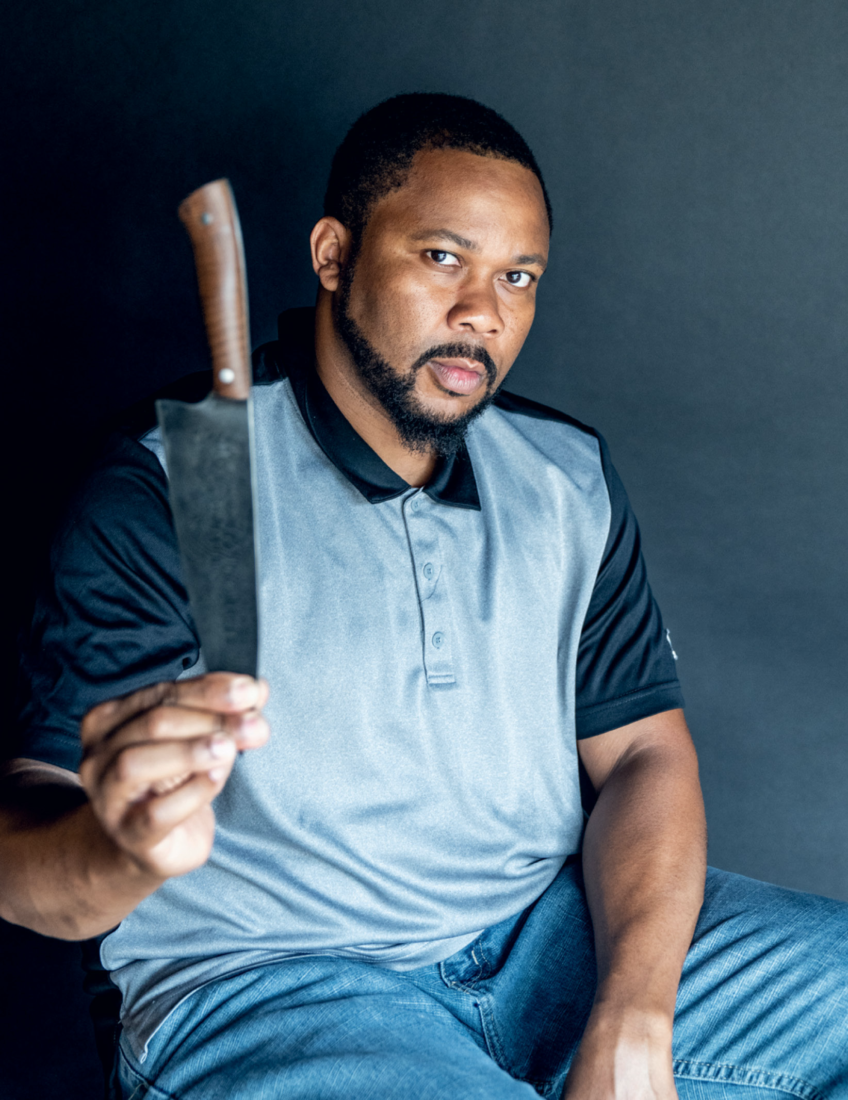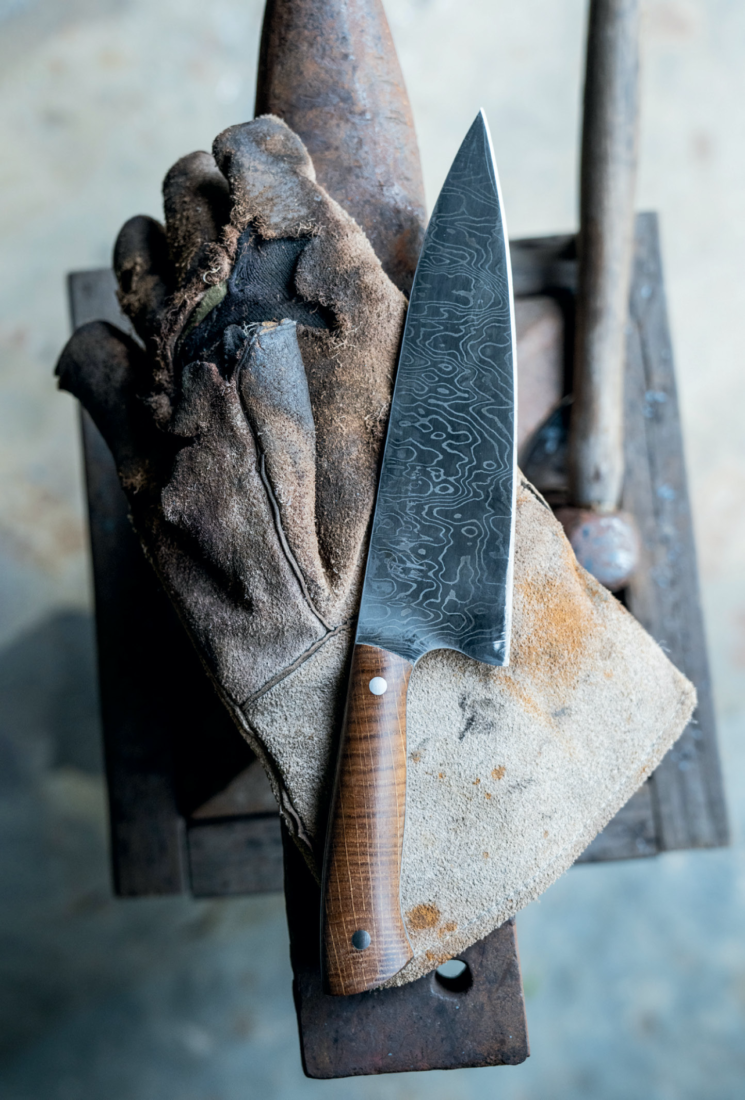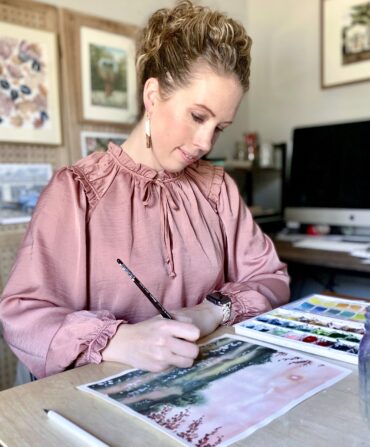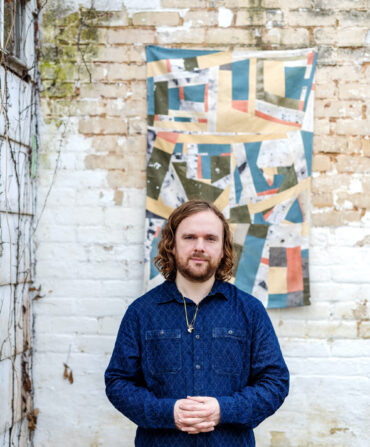No two of Quintin Middleton’s handmade culinary knives are exactly the same. At his workshop in St. Stephen, South Carolina, the bladesmith has crafted distinctive tools for a host of top Southern chefs since founding Middleton Made Knives in 2010. But none hold quite the meaning of one he made last year when a friend commissioned him to create a knife with the request that he make something truly special. “I thought, what can be deeper than my ancestral history?” Middleton says. The result is a beautiful eight-inch chef’s knife that in its own way represents the ugly truths of slavery in the South. He considered every element, beginning with the oak handle.
A little while back, Middleton had gotten a call from Charleston’s Middleton Place, a former plantation where his ancestors were once enslaved, about some trees that a hurricane had uprooted there, including a centuries-old live oak. For Quintin, that wood represented something that witnessed firsthand what his ancestors lived through, and turning it into something beautiful became a way to reclaim the narrative of slavery and its role in his family’s history. He chose to make the blade in Damascus steel, which is built with layers that in the forging process reveal contrasting wave-like patterns. That, too, spoke to the knife’s larger meaning. “If you think about history, it’s all woven through time,” Middleton says. “History can be dark, and sometimes light, but there’s a mixture of both that makes it what it is.”

Though the piece tells a story visually, a final aspect brings the narrative full circle, and that’s evident the moment it’s held in the hand. Typically, chef’s knives are thin, light, and precise tools. But Middleton purposefully crafted this one to be thicker and heftier than normal, a tangible symbol of its emotional weight. “So even though the handle and the Damascus steel look very pretty,” he says, “I wanted this knife to provide a constant reminder that you’re holding a piece that represents something heavy.”








